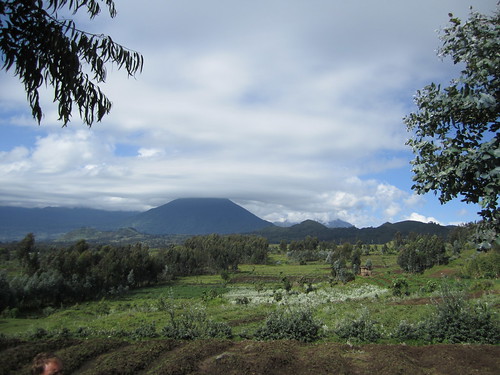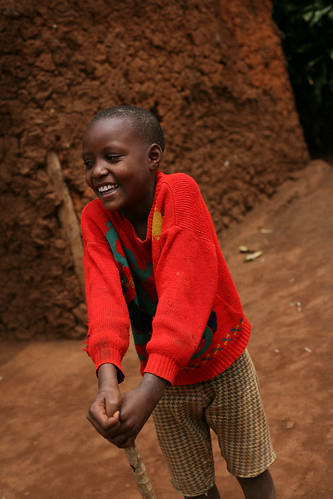Editor’s note: In Context is a new series designed to inform and educate you on Heifer’s work in each country we have a presence. Every two weeks we’ll tackle a different country and examine unique situations related to hunger and poverty, how Heifer works to address them as well as take some time to explore local culture and traditions.

Population: 11,689,686
Capital: Kigali
Native greeting: Muraho (Hello)
Official language: Kinyarwanda (official Bantu vernacular), French, English
Local currency: Rwanda Franc
A landlocked nation located in equatorial Africa, Rwanda is mountainous and home to Volcanoes National Park.

In 1959, three years before independence from Belgium, the Hutus, the majority ethnic group, overthrew the ruling Tutsi king. Over the next several years, thousands of Tutsis were killed, and some 150,000 were driven into exile into neighboring countries. The children of these exiles later formed a rebel group, the Rwandan Patriotic Front and began a civil war in 1990. The war, along with several political and economic upheavals, exacerbated ethnic tensions culminating in April 1994 with the genocide of roughly 800,000 Tutsis and moderate Hutus.
Tutsi rebels defeated the Hutu regime and ended the killing in July 1994, but approximately 2 million Hutu refugees - many fearing Tutsi retribution - fled to neighboring Burundi, Tanzania, Uganda, and Democratic Republic of the Congo (formerly Zaire).
Since then, most of the refugees have returned to Rwanda. Despite substantial international assistance and political reforms - including Rwanda's first local elections in March 1999 - the country continues to struggle to boost investment and agricultural output and to foster reconciliation.
Historically, the primary economic activities in Rwanda have been agriculture and livestock management.
 Heifer Rwanda
Heifer Rwanda
Livestock portfolio: Dairy cattle, dairy goats, meat goats, pigs, rabbits and sheep
Technology portfolio: Biogas, energy saving stoves, water harvesting, organic vegetable and mushroom gardens
Issues addressed: Poverty and hunger
Heifer Rwanda was established in 2000 with a grant from USAID working in collaboration with the Ministry of Agriculture and Animal Resources. Program implementation did not begin until May 2001 due to an outbreak of foot and mouth disease, suspending work with livestock until the outbreak was cleared. During this period, farmers were being trained in sustainable agricultural practices, which included the zero grazing system of farming, terracing of hillsides and planting of fodder trees for animal feeds and nitrogen fixation to improve soil fertility.
Currently, Heifer Rwanda is implementing International Fund for Agricultural Development and African Development Bank funded projects through collaboration with the Ministry of Agriculture and Animal Resources. Heifer Rwanda is also working with Partners In Health where Heifer Rwanda distributes goats and training, while PIH provides medical treatment for those suffering with HIV/AIDS and TB to project participant families.
Since 2000 Heifer Rwanda has assisted 7,000 families.